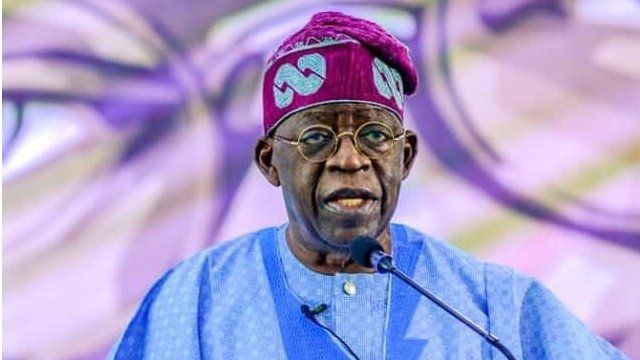President Bola Tinubu, on Wednesday in New York City, addressed world leaders at the 78th United Nations General Assembly (UNGA), during which he demanded for UN member states to match action with words concerning the crackdown on terror financing, economic sabotage, and illicit minerals, arms smuggling in the developing world, especially Africa.
According to him: “The fourth important aspect of global trust and solidarity is to secure the continent’s mineral rich areas from pilfering and conflict. Many such areas have become catacombs of misery and exploitation. The Democratic Republic of the Congo has suffered this for decades, despite the strong UN presence there. The world economy owes the DRC much, but gives her very little.
“Foreign entities that are abetted by local criminals, who aspire to be petty warlords, have drafted thousands of our people into servitude to illegally mine gold and other resources. Billions of dollars meant to improve the nation now fuel countless violent enterprises. If left unchecked, they will threaten peace and place national security at grave risk.
“Given the extent of this injustice and the high stakes involved, many Africans are asking whether this phenomenon is by accident or by design. Member nations must reply by working with us to deter their firms and nationals from this 21st century pillage of the continent’s riches.
“To keep faith with the tenets of this world body and the theme of this year’s Assembly, the poverty of nations must end. The pillage of one nation’s resources by the overreach of firms and people of stronger nations must now end.”
President Tinubu further noted that his aggressive economic development diplomatic push for new investment has been demonstrably effective in presenting Nigeria as business-ready, but the ease of doing business, according to the President, might not be the major encumbrance to large scale investment.
“The question is not whether Nigeria is open for business. The question is how much of the world is truly open to doing business with Nigeria and Africa in an equal, mutually beneficial manner. Direct investment in critical industries, opening their ports to a wider range and larger quantity of quality African exports, and meaningful debt relief are important aspects of the cooperation we desire,” the President affirmed.
He equally noted that the global fight against the effects of climate change can not be based on a “one size fits all” approach and that nations must be cooperated with in the design and implementation of their own strategies, which are tailored to their respective socio-economic strengths and weaknesses.
“African nations will fight climate change, but we must do so on our own terms. To achieve the needed popular consensus, this campaign must accord with our overall economic efforts.
“In Nigeria, we shall build political consensus by highlighting remedial actions which also promote the broader economic good. Projects such as ‘The Great Green Wall’ to stop desert encroachment; halting the destruction of our forests through the mass production and distribution of gas burning stoves; and the provision of employment through local water management and irrigation projects are examples of efforts that equally advance both economic and climate change objectives simultaneously.
“Continental efforts regarding climate change will register important victories, only if established economies were more forthcoming with public and private sector investment for Africa’s preferred projects and initiatives,” the President cautioned.
Tinubu concluded by urging world leaders to “walk with us as true friends and partners. Africa is not a problem to be avoided, nor is it to be pitied. Africa is nothing less than the key to the world’s future.”


















